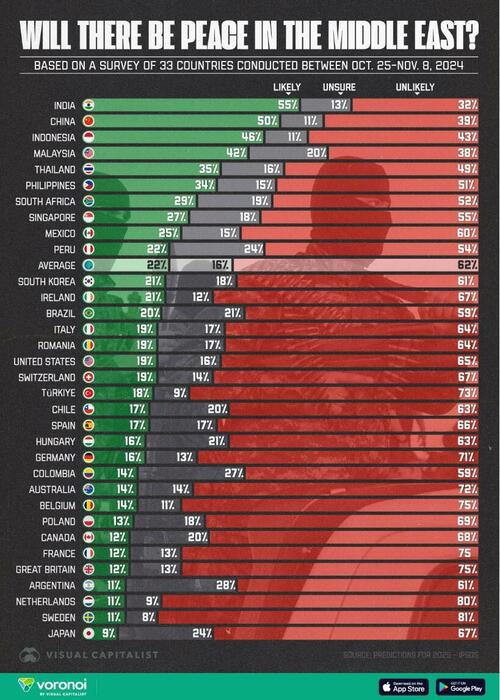
The ceasefire announced in January 2025 by Israel and Hamas was celebrated by both sides after months of mediation by the U.S., Qatar, and Egypt.
However, lasting peace depends on a series of demands both parties agreed to. Beyond the Gaza conflict, the Middle East continues to grapple with civil wars and political instability in countries such as Syria and Iraq. This graphic, via Visual Capitalist's Bruno Venditti, presents the results of a survey conducted by Ipsos , which asked people in different countries if they believe the conflicts in the Middle East will end in 2025.

Methodology: Ipsos surveyed 33 countries between Friday, October 25, and Friday, November 8, 2024. The survey included 23,721 adults aged 18 and older. The majority of respondents and countries chose “Unlikely”, meaning that they do not believe conflicts will end in 2025.
People in the Netherlands and Sweden are the most pessimistic about the resolution of conflicts in the region. Meanwhile, China and India have the highest share of respondents who believe the conflicts could end this year. In the United States, 52% said it is unlikely, while 26% believe in peace for the region, and 22% remain unsure.
If you enjoyed this topic, check out this graphic that presents the results of another survey conducted by Ipsos, which asked people in different countries whether they believe the conflict in Ukraine will end in 2025..















